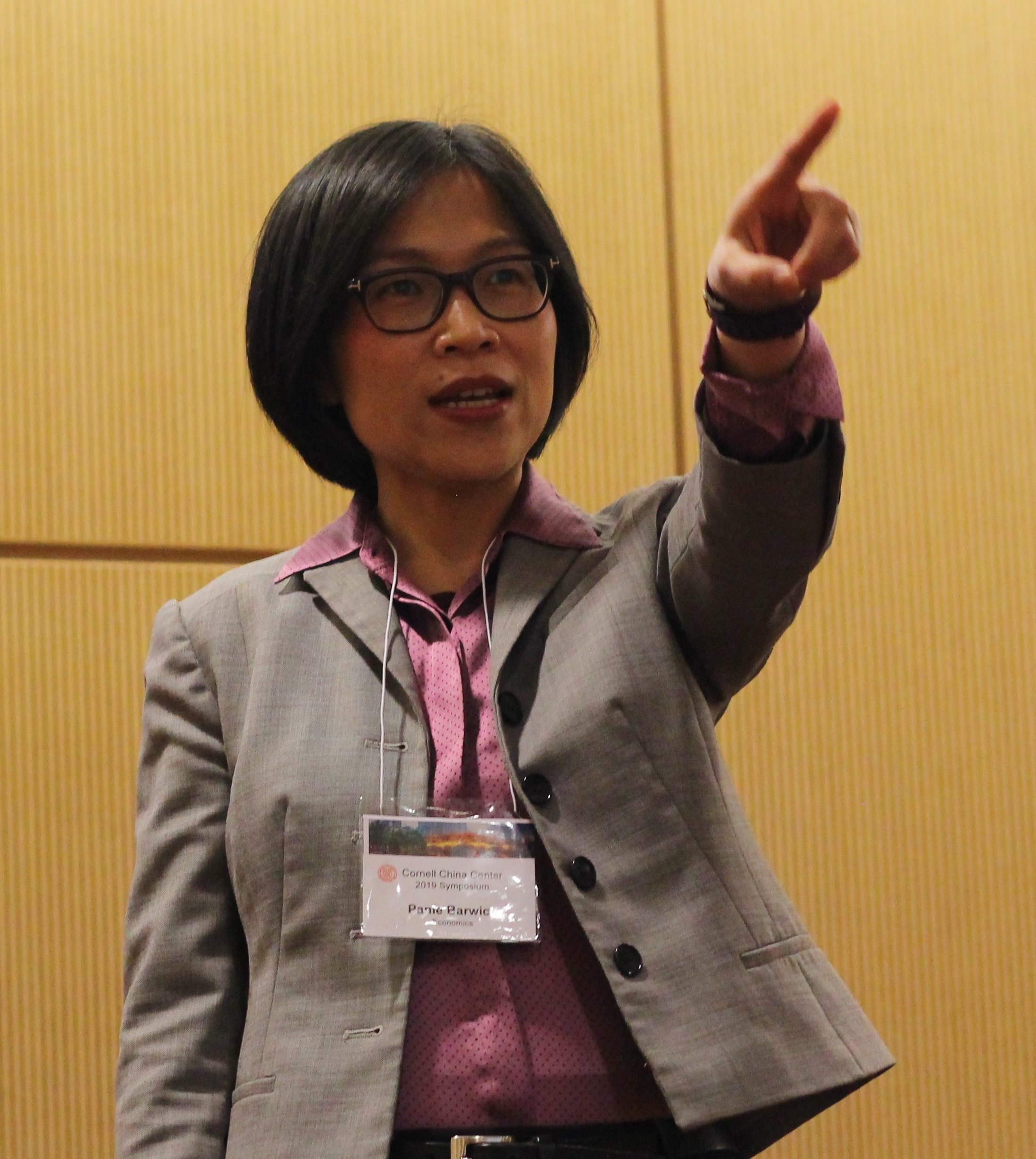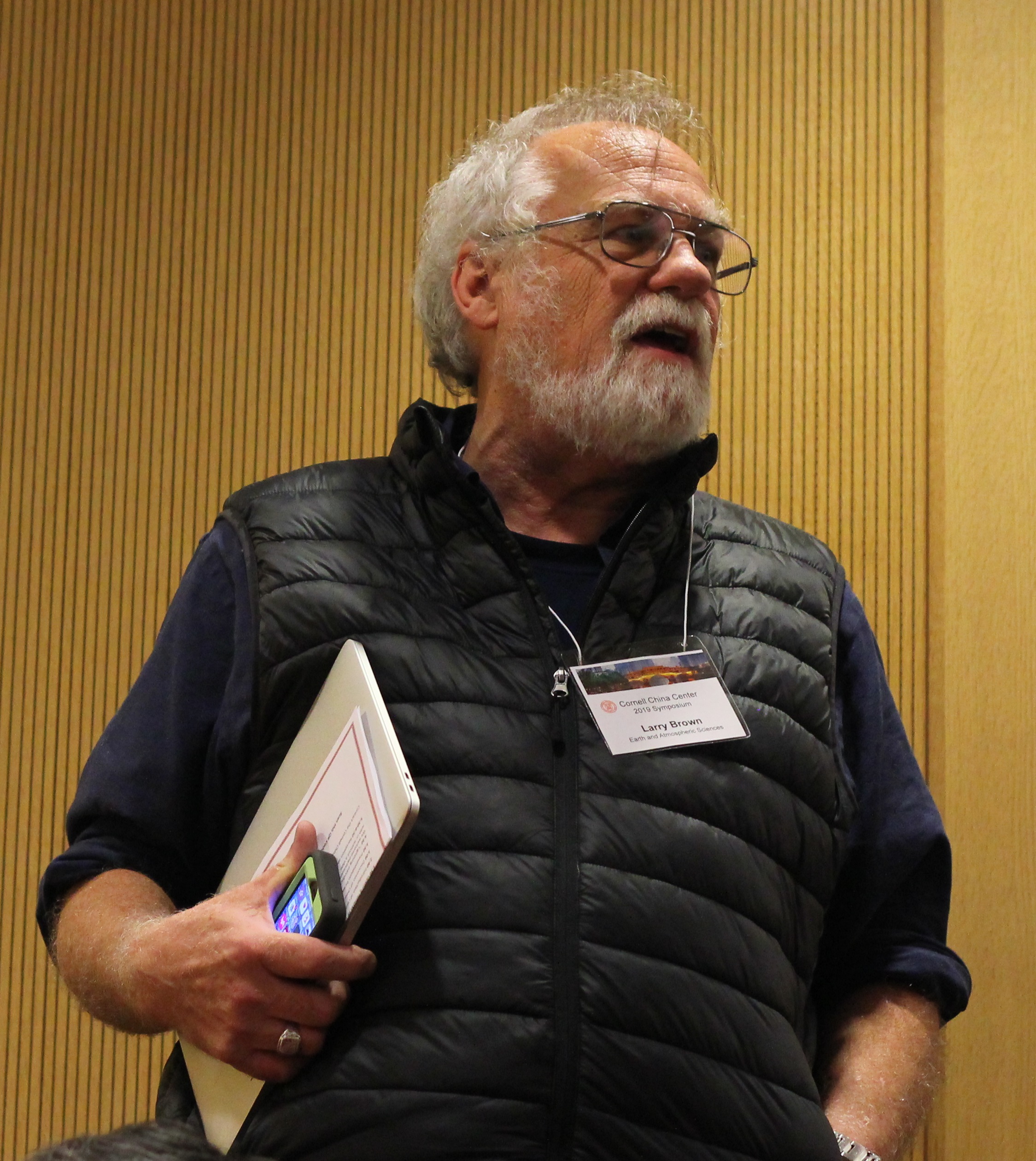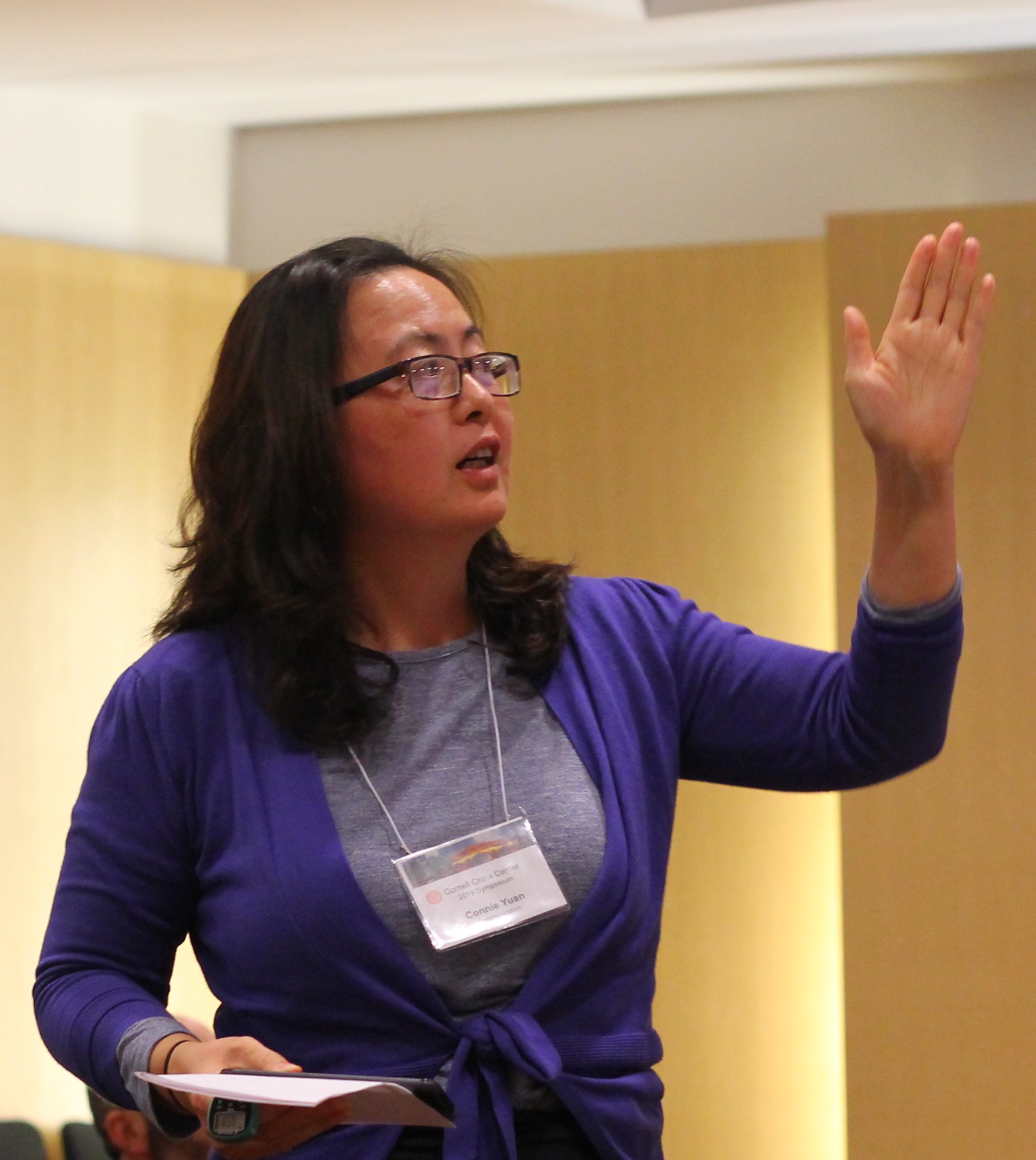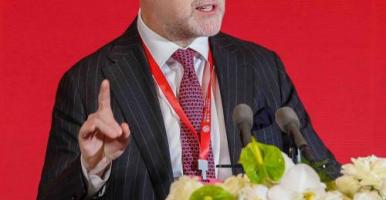 Economics professor Panle Barwick introduced the Cornell Institute for China Economic Research.
Economics professor Panle Barwick introduced the Cornell Institute for China Economic Research.
 Geophysics professor Larry Brown shared his collaborative activities with SinoProbe.
Geophysics professor Larry Brown shared his collaborative activities with SinoProbe.
 Communications professor Connie Yuan spoke at the Cornell China Center Symposium 2019.
Communications professor Connie Yuan spoke at the Cornell China Center Symposium 2019.
On Friday, April 26, 2019, the Cornell China Center brought together scholars from across campus to learn about the center, to discuss the opportunities and challenges of working in China, to share China research interests through "lightning introductions" and research presentations, and to network. The event showcased the diversity of China research happening in fields including architecture, art, business, earth science, ecology, economics, engineering, design, development sociology, government, history, horticulture, natural resources, sociology, and more. Cornell Vice Provost for International Affairs Wendy Wolford opened the symposium and introduced the Cornell China Center with the below opening remarks. We look forward to holding more similar events in the future to continue building connections between China researchers at Cornell. In the meantime, we invite you to send us stories about your Cornell-China research, education, and other initiatives to feature on our website.
Opening Remarks at the Cornell China Center Symposium
By Wendy Wolford, Vice Provost for International Affairs, Cornell University
Welcome to the Forum; it’s nice to see so many people here at such a busy time of the semester. I hope this will be the first of many such meetings and exchanges.
I want to start by reaffirming the university’s commitment to working in China and to welcoming Chinese scholars and students on our campus.
At the same time, I want to recognize that these are challenging times and China is a challenging country. The path we take as academics, partners, and responsible citizens is not always clear—this is true anywhere and any time, but it is particularly true right now, and it is particularly true working in China.
This is a country with which we have more than 100 years of connection. We have more faculty who work in and on China than in any other single country. We have more students and faculty from China than from any other country—and through these academic and personal connections, we have been able to learn from, shape, and benefit from a spectacular history, culture, and set of minds.
Today, we’re rightly concerned with questions of human rights abuses in China and other countries around the world, including our own. We are reminded regularly of how precious academic freedom is, and that we should not take it for granted—even as we are tasked by our government in increasingly specific ways to tighten our surveillance of particular academic fields and partners on campus.
I struggle with the response to all of these, in relation to international collaboration, but I know that the two ends of the spectrum are false choices. The two ends, as I see them, are “reciprocity” on the one hand, and “relativity” on the other—where reciprocity means that we only engage in countries that reciprocate our own values, and relativity means we suspend all value judgment and consider all differences to be equal and acceptable. Somewhere in between reciprocity and relativity is where we should stand, and that means being thoughtful, though with a preference for engagement and a perspective that is long term.
At present this means that the university remains committed, as I said before, to working in China and welcoming scholars and students to our campus—but we will take precautions against any dangers in doing so.
Before I turn the microphone over, I want to answer a few questions that I have heard in relation to the China Center.
FIRST: The China Center has drawn some criticism for its approach to China, and I want to stress that the center is just one of many institutes and initiatives across campus that celebrate or facilitate work in China. We also have the Cornell Contemporary China Initiative, East Asia Program, Cornell Institute for China Economic Research, the Cornell Asia-Pacific Studies major, and the library. The particular focus of the Cornell China Center is on connection, particularly to our academic partners in China and to our alumni—and that makes the Cornell China Center slightly different than other spaces on campus.
SECOND: We—the university, and particularly the China Center—are not in China to make money. We are a non-profit institution of higher education, and, by our own by-laws as well as Chinese law, we do not profit from the work we do there nor can we take money out of the country. All of the effort we are expending is for the sake of promoting our faculty—all of you—and students and their scholarship.
THIRD: All of our peers continue to engage in China, as we are doing, and we are all putting into place a reasonable set of controls and protocols. To that end, the university has increasingly rigorous protocols in place for international research. This means that we have done—or are doing—all of the things recommended by the APLU and the AAU.
I want to highlight six key things that we have done:
1. We have established a unit of Global Operations that evaluates international activities and compliance with foreign regulations and restrictions; this unit includes a manager of International Travel Health and Safety who is working to promote the safety of Cornell faculty and students abroad.
2. We have in place and will be strengthening export controls that oversee the possible release of critical technologies to foreign individuals or institutions.
3. We have created an International Gift Review Committee, which the VPIA chairs, that reviews any donation coming into the university over $500,000—we review for any reputational, ethical, and legal concerns.
4. We have created two committees on “ethical engagement”—one that is a subcommittee of the Faculty Advisory Committee for the China Center, and one that is a subcommittee of the university-wide International Council. Our hope is that these committees can provide guidance on ethical approaches to overseas engagement, not just in China but including China.
5. We cooperate with local and federal security and intelligence agencies; we’ve met with local FBI regularly, and particular faculty members are also in touch.
6. My office also oversees international delegations on campus, although we depend on faculty and colleges to oversee any visitors outside of the formal delegation process.
7. We work with the Office of the Vice Provost for Research to ensure that all research conducted with collaborators of any kind should be governed by contracts (whether through Navigate or the Office of Sponsored Programs) with clear expectations for on-campus visits, data collection, hardware protection, and so on.
Our hope is that these steps will help to make collaboration abroad compliant, ethically sound, and productive.I have personally greatly enjoyed seeing the China Center take shape—it has been wonderful to work with Ying Hua, who has so many good ideas. We were both thrilled by the response to the call for proposals for Innovation Awards, and I look forward to participating in the discussion and hearing the presentations today.

